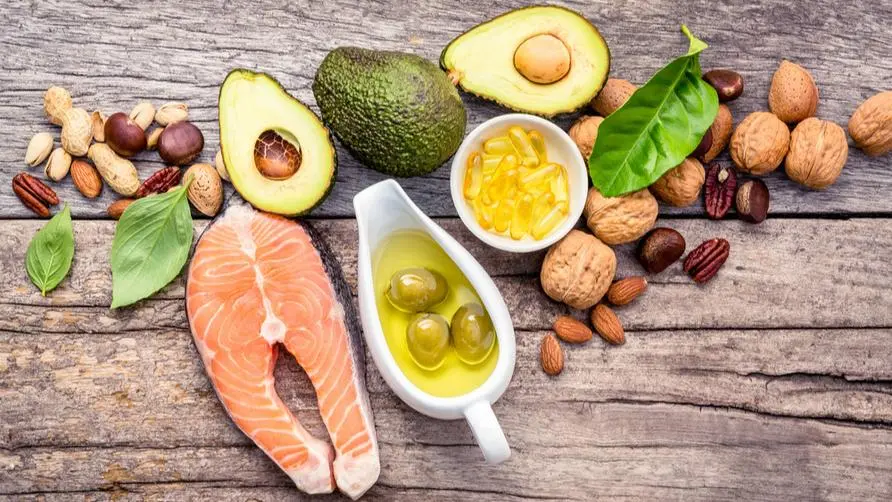How to maintain immunity after the mask ban is lifted? Nutritionist reveals 5 must-eat nutrients in the "post-epidemic era"

Indoor mask policy announced to be lifted! “5 major nutrients” that the post-epidemic generation must eat
The Central Epidemic Command Center announced on the 9th that starting from February 20, if the epidemic can be controlled, except for the two major occasions of public transportation and medical institutions, people in other indoor environments can decide whether to wear masks. However, many people are still worried that the risk of virus infection will suddenly increase after the mask ban is lifted, and they are also worried that the daily life of the elderly or family members will be affected by the strong virus infection.
The world is entering the “post-epidemic era.” Although the impact of the virus is less than before, there is no guarantee that another wave of epidemics will not occur in Taiwan after the ban on indoor masks is lifted. Dietitian Gao Minmin said in a social post that if people want to improve their self-immunity after the mask ban is lifted, they can consider taking in more of the following five nutrients to prevent the influx of various viruses:
- High-quality protein. Protein is the main component of white blood cells and antibodies in cells. If protein intake is insufficient or of low quality for a long time, the risk of infection with bacteria and viruses will increase. It is recommended that each person needs to eat 5-8 servings of protein a day, which is about the size and thickness of one and a half palms. It is best to consume it from two sources: “animal” and “plant”:
Plant-based protein sources: beans, tofu and soy products.
Animal protein sources: lean meat, chicken, fish, seafood, milk, eggs, etc.
Vegetables and fruits. Phytochemicals in fruits and vegetables have a protective effect on the human body. For example, the polysaccharides in black mushrooms can mediate immune function. Carrots, bell peppers, and tomatoes are rich in vitamin A, which is beneficial to protecting the eyes, nasal cavity, oral cavity, and gastrointestinal tract. Healthy mucous membranes everywhere. It is recommended to consume 2-3 servings of various vegetables and 2-3 fist-sized fruits a day.
Omega-3 fatty acids. Omega-3 helps reduce “chronic inflammation” in the body and prevents immune cells from becoming overworked or imbalanced. However, the human body cannot produce Omega-3 on its own, so it must be obtained from food. It is recommended to consume deep-sea fish, such as mackerel, saury, tuna or salmon, three times a week, or plant-based sources such as seaweed, nuts, flaxseed, linseed oil, and perilla oil.
Whole grains and cereals. Non-refined cereals are rich in vitamin B complex, as well as various minerals and dietary fiber. In particular, vitamins B2, B5, B6, and folic acid are beneficial to immune functions such as maintaining cell mucosal health and producing antibodies. It is recommended to eat at least one bowl of brown rice, five-grain rice or oatmeal among the three meals a day instead of refined white rice, white noodles, white bread, toast, etc.
Good bacteria/probiotics. Good bacteria can adjust gastrointestinal health, regulate immunity and reduce the chance of disease. Fermented dairy products such as yogurt and yogurt can convert most of the lactose that can easily cause allergies into lactic acid, and can also break down the nutrients of dairy products into small molecules for easier absorption by the body. It is recommended to drink 1-2 250ml bottles of yogurt or small boxes of yogurt every day, and then supplement the good bacteria needed by the body through other foods such as natto and Korean kimchi.
Is your immunity too strong or too weak bad? If the immune function is too strong, a “full-scale civil war” may break out
Improving immunity is certainly important in the post-epidemic era, but whether immunity is “too strong” or “too weak” may have adverse effects on the body? Highly sensitive nutritionists explain that a normal immune system helps the body identify foreign invaders and normal cells, and deal with internal aging, damage and mutations.
However, if the immune system is “too strong”, it may damage your own cells and cause irreparable damage. Highly sensitive nutritionists list the pros and cons of too much/too little as follows:
Low immunity: Harmful substances easily multiply in the body and cause various types of diseases. If you are infected with COVID-19, the virus will multiply in the body, which may lead to severe infection and increase the mortality rate.
Normal immunity: can help identify foreign invaders and fight against foreign pathogens. You can maintain the immunity your body needs by adjusting your work and rest schedule, eating a healthy diet and exercising moderately.
Excessive immunity: Immune cells will attack your own cells, causing immune pathological damage, and may cause autoimmune-related diseases such as lupus erythematosus, rheumatoid arthritis, and ankylosing spondylitis.
Therefore, Gao Min Min Nutritionist reminds the public that if you are a patient with an autoimmune disease, or have problems such as innate immune deficiency, you should consult a doctor or nutritionist during the epidemic to obtain dietary or lifestyle guidelines that are suitable for you. In addition, you must consult a medical unit before administering the COVID-19 vaccine to ensure that the administration process is safe and to avoid serious side effects.
Further reading:





